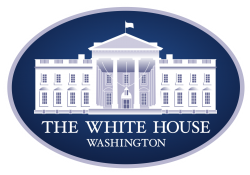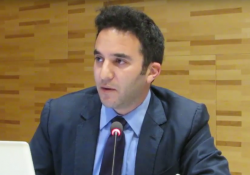We have several pages related specifically to the U.S. Bayh-Dole Act here. KEI efforts to address pricing and other public interest issues in more than 30 different NIH licensing cases, involving both patents and data rights, are here: http://keionline.org/nih-licenses KEI… Continue Reading →

4 APRIL 2017
FOR IMMEDIATE RELEASE
CONTACT: Zack Struver, zack.struver@keionline.org or +1 (202) 332-2670
In a letter sent today, Representative Lloyd Doggett, D-Texas, and 50 other democratic members of Congress requested that President Donald J. Trump issue guidance for the use of Bayh-Dole Act march-in rights in order to protect taxpayer’s rights in federally-funded patented inventions.
The following statement should be attributed to James Love, Director of Knowledge Ecology International (KEI):
“The letter from members of Congress on the need to protect taxpayer’s rights in the inventions they fund is important, timely, and directly related to the challenge of providing affordable health care to everyone. Federally-funded inventions are now routinely placed on the market at extremely high prices. Astellas charges more than $350 per day for the prostate cancer drug Xtandi, and BioGen is charging $1.125 million for the first two years of Spinraza, which is used to treat spinal muscular atrophy in mostly young children. The notion that the federal government will not engage on the pricing of these products runs counter to the explicit provisions in the Bayh-Dole Act that require inventions be made ‘available to the public on reasonable terms.’ The President can curb high prices for these drugs without new legislation, and without putting patients at risk.”
KEI filed the most recent march-in request with the federal government on the prostate cancer drug Xtandi.
The letter is available as a PDF here and below in plain text.
Representative Doggett’s office issued the following press release: https://doggett.house.gov/media-center/press-releases/congressional-democrats-trump-we-re-calling-your-hand-lower-prescription
Continue Reading →
James Love and Andrew Goldman represented KEI on March 16, 2017, in a working group meeting of a subcommittee of the Maryland General Assembly House of Delegates Health & Government Operations Committee, where they testified on HB666/SB437, a bill that would establish transparency of R&D costs for prescription drugs sold in Maryland.
Vincent DeMarco of at Health Care for All! and Dr. Reshma Ramachandran of the Johns Hopkins Bloomberg School of Public Health also testified at the hearing.
Continue Reading →

The Department of Health and Human Services Office of Inspector General (OIG) informed KEI that it would not move forward with an investigation into whether Isis Pharmaceuticals, now known as Ionis Pharmaceuticals, failed to report federal funding in patents on Spinraza.
In a letter dated March 13, 2017, Matthew Charette, the Special Agent in Charge of the Investigations Branch of OIG, explained that OIG counsel believes that OIG has limited authority, and that the obligation to “monitor[] invention reporting and remedy[] noncompliance” “rests with NIH’s Office of Policy for Extramural Research Administration (OPERA).”
On January 18, 2017, KEI submitted a 22-page letter to OIG containing evidence that the patents on Spinraza benefited from federal grants. KEI did not just ask OIG to investigate Isis’ alleged failure to report this funding, in violation of the Bayh-Dole Act and federal regulations, but also urged the OIG “to investigate whether the National Institutes of Health failed to conduct proper oversight in administering its grants” and to “recommend appropriate action to remedy the situation in line with the statute and prior decisions with regard to failure to disclose a subject invention.”
Continue Reading →
KEI has asked the DHHS Office of Inspector General (OIG) to investigate a failure to disclose federal funding of patents on nusinersen, a drug developed by Ionis Pharmaceuticals (formerly known as Isis Pharmacetuicals) with BioGen, and sold under the trade name Spinraza.
A copy of the 22 page letter to OIG is available here.
Continue Reading →



